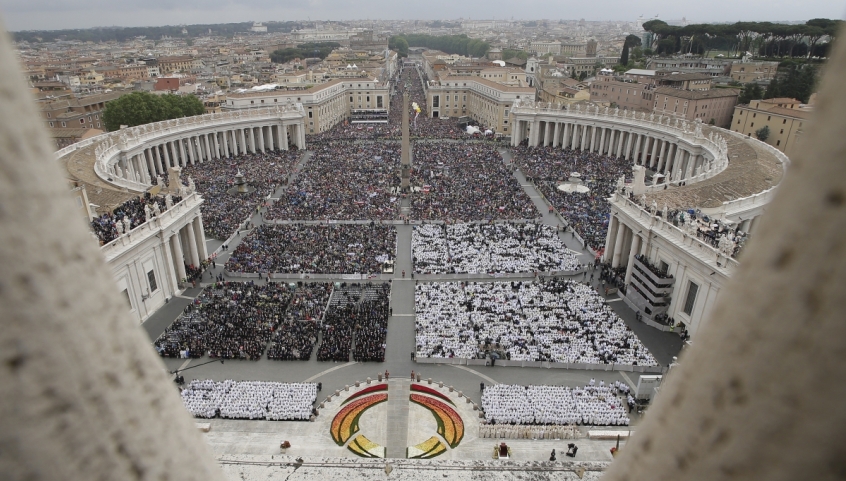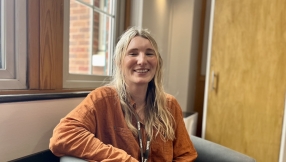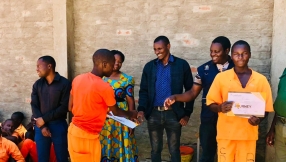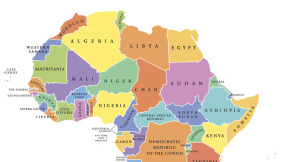
Two former Vatican managers and a lawyer are being investigated over suspicions that they embezzled money from the sale of Vatican-owned property to their own bank accounts.
The Vatican's top prosecutor has frozen 16 million euros in bank accounts owned by former bank president Angelo Caloia, ex-director general Lelio Scaletti, and lawyer Gabriele Liuzzo.
The move is part of an investigation into the sale of Vatican-owned real estate in the 2000s, according to the freezing order and other legal documents.
Prosecutor Gian Piero Milano said he suspected the three men of embezzling money while managing the sale of 29 buildings sold by the Vatican bank to mainly Italian buyers between 2001 and 2008, according to a copy of the freezing order reviewed by Reuters.
The money in the three men's bank accounts "stems from embezzlement they were engaged in," Milano said in the October 27 sequester order.
Milano's investigation follows an audit of the Vatican bank by non-Vatican financial consultants commissioned last year by the bank's current management. The Vatican bank earlier this year also filed a legal complaint against the three men. The men have not been charged.
The Vatican spokesman on Saturday issued a statement confirming the freezing but gave no names, amounts or other details.
The Vatican bank said in a separate statement that it had pressed charges against the three as part of its "commitment to transparency and zero tolerance, including with regard to matters that relate to a more distant past". The bank statement also gave no details, citing "the ongoing judicial enquiry".
The investigation is part of a drive to improve the transparency of the Vatican administration and finances, an endeavour that has accelerated under Pope Francis. The Argentine pontiff was elected in 2013 with a mandate to make the Roman Catholic Church more accountable to its 1.2 billion faithful.
Liuzzo, 91, confirmed in a telephone interview that his bank accounts had been frozen. He said the prosecutor's allegations were "rubbish" and that all money from the sales of the buildings had gone to the bank.
Caloia, 75, did not respond to emailed questions and phone calls to his home and office requesting comment. Scaletti, 88, did not respond to messages left at his home.
The period relating to property sales covers seven years, and two papacies, when the Vatican's administration often operated without oversight.
INFLUENTIAL BANK
John Paul II was incapacitated by illness for years before his death in 2005. His successor, former Pope Benedict, is a theologian who Vatican officials say did not focus on management issues.
During these years, the Curia, as the Church's central administration is known, was marked by feuding among Vatican departments and leaks of papal documents. The tensions were a reason Benedict resigned in early 2013, people close to the former pope say.
The bank, officially known as the Institute for Works of Religion (IOR), is the core of Vatican finances, but its influence stretches beyond Holy See walls, because of tight relations between the religious city-state and Italy.
In recent years, it has changed management and closed hundreds of accounts in order to comply with international anti-money-laundering and anti-financial crimes laws.
Last year, Ernst von Freyberg, a German businessman who ran the bank from March 2013 to July 2014 and worked to apply international financial standards, commissioned an independent audit of the sale of properties that had been owned by the bank.
The audit, which was reviewed by Reuters, details the sales of the 29 buildings, which are largely in Rome and Milan.
In the freezing order, Milano said Caloia and Scaletti regularly under-represented the proceeds from real estate sales in the Vatican bank's official books. The men allegedly received the difference between the real sale prices and the amount officially recorded separately and often in cash, according to the order.
Some of the proceeds were deposited in a Rome bank account that was not registered in the bank's balance sheet, the prosecutor said. An estimated 57 million euros were allegedly siphoned off illegally between 2001 and 2008, he said. Liuzzi, the legal consultant, received part of the funds, the freezing order added.
In the phone interview, Liuzzi said he had always acted according to the orders of the bank president and director general.
It is not clear whether Milano has finished his investigation. According to a person close to the probe, the prosecutor could seek to involve Italian authorities because most of the sales took place in Italy.
Source: Reuters













